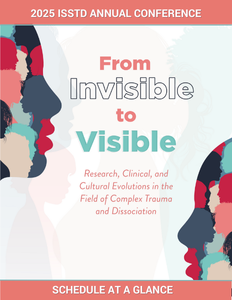Back
Symposium
Assessment of Complex Dissociation: Implications for Treatment, Research and Forensics
Assessing Trauma and Dissociation During Documentation of Human Rights Violations
Saturday, March 15, 2025
3:30 PM – 5:00 PM US Eastern Time
Location: Berkeley
- KB
Kim Baranowski, PhD (she/her/hers)
Senior Adviser
McLean Trauma Continuum of Care at Hill Center, United States
Abstract
Approximately 130.8 million people have been forcibly displaced from their homes and communities in the past year due. Individuals and families who must flee their countries of origin to seek protected immigration status often experience exposure to trauma in pre-migratory, migratory, and post-migratory settings. Research has found that asylum seekers present with symptoms of depression (75.49%), PTSD (66.67%), and anxiety (61.76%). During their application for asylum, individuals who have fled persecution and other forms of ill treatment can submit psychological evidence of the mental health impact of human rights violations documented by trained clinical professionals. Studies have demonstrated that the submission of these medico-legal affidavits and associated expert testimony provide invaluable evidence of harm and can increase asylum grant rates significantly. This presentation will introduce attendees to the forensic documentation of psychological sequelae of human rights abuses and the most commonly employed screening instruments, as well as findings from a preliminary analysis of symptoms of dissociation among communities experiencing forced migration. The presenter will also share implications for effective testimony, clinical service provision, and future research directions.
Approximately 130.8 million people have been forcibly displaced from their homes and communities in the past year due. Individuals and families who must flee their countries of origin to seek protected immigration status often experience exposure to trauma in pre-migratory, migratory, and post-migratory settings. Research has found that asylum seekers present with symptoms of depression (75.49%), PTSD (66.67%), and anxiety (61.76%). During their application for asylum, individuals who have fled persecution and other forms of ill treatment can submit psychological evidence of the mental health impact of human rights violations documented by trained clinical professionals. Studies have demonstrated that the submission of these medico-legal affidavits and associated expert testimony provide invaluable evidence of harm and can increase asylum grant rates significantly. This presentation will introduce attendees to the forensic documentation of psychological sequelae of human rights abuses and the most commonly employed screening instruments, as well as findings from a preliminary analysis of symptoms of dissociation among communities experiencing forced migration. The presenter will also share implications for effective testimony, clinical service provision, and future research directions.

